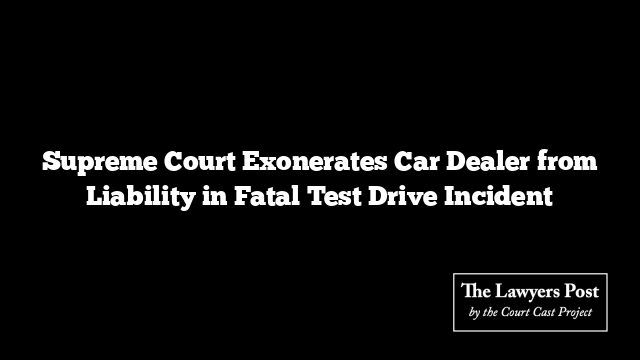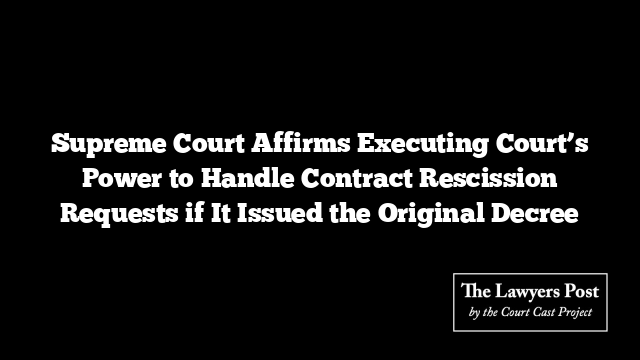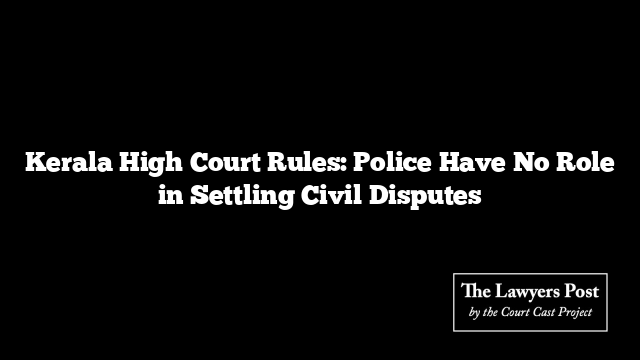In a significant ruling, the Supreme Court has determined that a car dealer is not liable for compensation under the Motor Vehicles Act, 1988, following a tragic accident that resulted in a death during a test drive conducted by employees of the vehicle’s manufacturer.
The case involved a fatal accident during a test drive of a Lancer vehicle, for which both the dealer and the manufacturer had initially been held jointly liable by a Tribunal. The dealer contested this liability, asserting that the deceased was a manufacturer employee and that, despite an ownership transfer agreement, there was no actual sale of the vehicle at the time of the incident.
The Supreme Court sided with the dealer, emphasizing that at the time of the accident, the dealer was neither the owner nor in control of the vehicle. The court noted, “The vehicle was being driven by an employee of Hindustan Motors, and therefore, apart from the driver, Hindustan Motors alone is liable for the compensation awarded. The dealer should not bear any financial responsibility.”
Case Overview
The claim for compensation was initiated by the deceased’s heirs under Section 166 of the Motor Vehicles Act against the vehicle’s driver, Hindustan Motors, and the dealer, Vaibhav Motors. The deceased held the position of Territory Manager at Hindustan Motors, while the driver was a Service Engineer. The accident occurred during a test drive from Vaibhav Motors.
Tribunal’s Findings
The Tribunal ruled that Hindustan Motors retained ownership of the vehicle on the day of the accident, despite Vaibhav Motors being its dealer. Consequently, both companies were deemed jointly liable for the compensation awarded. The legal heirs of the deceased, dissatisfied with the awarded amount, pursued further appeals in the High Court.
Arguments Presented
The dealer’s counsel argued that, although the vehicle was manufactured by Hindustan Motors, there was no evidence of its transfer to the dealer. The vehicle was under Hindustan Motors’ control at the time of the accident. Furthermore, the dealership agreement did not classify Vaibhav Motors as the vehicle’s owner under the Motor Vehicle Act.
Conversely, Hindustan Motors contended that a sale had occurred and that an invoice had been issued to the dealer. They also pointed to the dealership agreement, which allegedly absolved them of liability, claiming the dealer was the possessory owner of the vehicle.
Supreme Court’s Conclusion
The court examined the legal definitions and past judgments regarding the concept of ‘owner.’ It highlighted that the presumption of ownership typically follows the name on the registration certificate, but this can be rebutted by evidence showing actual control and possession of the vehicle.
The court affirmed the Tribunal’s finding that both the deceased and the vehicle’s driver were employees of Hindustan Motors and that they had taken the vehicle from Vaibhav Motors for a test drive. Crucially, there was no evidence suggesting that the dealer possessed constructive ownership of the vehicle.
The court stated, “The vehicle was under the control of Hindustan Motors at the time of the accident, and thus, the dealer cannot be held liable for compensation.”
Regarding the dealership agreement, the court ruled that its clauses pertained solely to defects in the vehicle and did not exclude tortious liability arising from its use. Therefore, Hindustan Motors could not evade responsibility.
The court also ruled that Hindustan Motors could not contest its liability without filing a separate appeal, as it allowed the Tribunal’s finding to stand unchallenged.
Final Ruling
The Supreme Court upheld the Tribunal’s award while clarifying that should the dealer pay any portion of the compensation, they are entitled to recover the amount from Hindustan Motors, including interest accrued from the date of payment until reimbursement.





